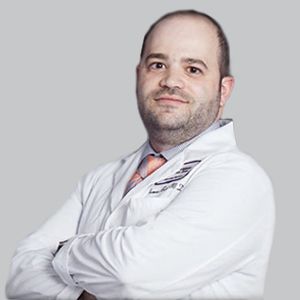Diagnosing Migraine, Knowing the Basics
Berk spoke to the important partnership between primary care and specialists in neurology.
Thomas Berk, MD, Clinical Assistant Professor, Department of Neurology, NYU Langone

Thomas Berk, MD
The United States is expected to face a shortage of physicians by 2030 and as the population ages and a greater number of people face problems of stroke, migraine, dementia and other neurodegenerative disorders, the demand for neurologists is expected to grow faster than supply. A recent report by the National Center for Health Workforce Analysis estimates that while the supply of neurologists may have grown 11% between 2013—2025, demand will grow by 16%.
While there are nationally too few neurologists, there’s even fewer headache specialists, making it almost essential for primary care physicians to be comfortable managing migraine.
To provide a better understanding of the importance between primary care physicians and specialists in neurology, NeurologyLive spoke with Thomas Berk, MD, Clinical Assistant Professor, Department of Neurology, Division of Headache Medicine, NYU Langone. While education on migraine primary headache disorder treatments is necessary, Berk advised clinicians to be cautious when diagnosing patients because not everything out there is migraine.
How important is the partnership between primary care and specialists in neurology? How can it be improved?
TB:I think the communication between primary care specialists and neurologists and headache specialists is absolutely key, communication is extremely important. It’s very, very, very important for primary care doctors to know the basics with regards to headache—obviously to know what’s migraine and what isn’t, to know some basic treatments for migraine and to have an idea as to what’s available because many of the patients that they’ll have, even if they’re not necessarily newly diagnosed migraine patients they will be on some of the newer treatments and if the primary care doctor isn’t familiar with them, they won’t necessarily know the potential side-effects to look out for. Many times, if there are issues the patients will call their primary care doctor even before they’ll call their specialist. It’s very important that there’s a very robust give-and-take between primary care doctors and headache specialists.
What’s the best advice you could give to other clinicians?
TB: The best thing that you can do is to just listen to the patients, uninterrupted for 5 or sometimes even 10 minutes, just to listen to their story, and if you can hear their story you’ll hear all of their subtleties—you’ll have a much better approach and a much better idea as to which medications to try first for those patients. I think that is honestly the best thing, you listen to the patients you don’t try to lead them one way or the other and you’ll come up with what’s likely going to be the best treatment for the patients.
What should clinicians be aware of?
TB: I think they should know that there’s a lot out there that’s not migraine also, and they should educate themselves on not migraine primary headache disorders and other potential treatments that are out there, because it’s very likely that they’re seeing them and some of the reasons why patients have refractory headache disorders is because they’re not actually being treated for the thing that they actually have. I would say that I think it’s very important for neurologists to obviously educate themselves with regards to migraine treatments, but don’t think everything out there is migraine.
Transcript edited for clarity.
REFERENCE
Health Workforce Projections: Neurology Physicians and Physician Assistants. National Center for Health Workforce Analysis. https://bhw.hrsa.gov/sites/default/files/bhw/health-workforce-analysis/research/projections/BHW_FACTSHEET_Neurology.pdf. Published March 2017. Accessed September 4, 2018.